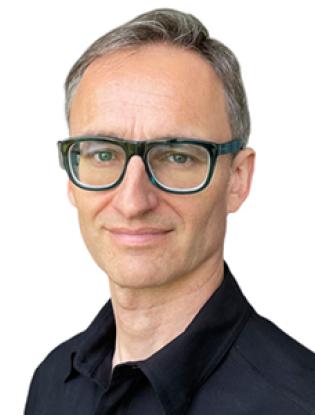Marcin Kortylewski, Ph.D.

Duarte Cancer Center
Duarte, CA 91010
1999, Doctorate, Molecular Biology, Poznan University of Medical Sciences, Poland
1991-1996, Master of Science, Biotechnology, Adam Mickiewicz University, Poznan, Poland
1996-1998, Graduate Student, Department of Biochemistry, RWTH Aachen, Germany
2002-2005, H. Lee Moffitt Cancer Center, Tampa, FL, Immunology Program, Postdoctoral Fellow
1999-2002, RWTH Aachen, Germany, Department of Biochemistry, Postdoctoral Fellow
2021-present, Professor, Immuno-Oncology, City of Hope, Duarte, CA
2015-2021, Associate Professor, Immuno-Oncology, City of Hope, Duarte, CA
2010-2015, Assistant Professor, Cancer Immunotherapeutics & Tumor Immunology, City of Hope, Duarte, CA
2005-2009, Assistant Research Professor, Cancer Immunotherapeutics & Tumor Immunology, City of Hope, Duarte, CA
Cancers evolved to escape detection by the immune system by co-opting immune cells as a source of growth or angiogenic factors and protection. Targeting signaling specifically in such tumor-associated immune cells has been challenging for pharmacological drugs. We focus on understanding immune cell dysfunction in tumors and translating these findings into novel, precision cancer immunotherapies. Our group developed a platform technology to deliver DNA/RNA drugs into tumor-associated immune cells in vivo. Our synthetic oligonucleotides target the undruggable master regulators at the molecular level, which, as STAT3, NF-kB or certain miRNAs, are nodes of signaling from diverse receptors and kinases. Our two-step immunotherapeutic strategy is to disarm tumor defense systems and activate immune attacks from within using a single DNA/RNA drug.
Over the last years, we have studied the mechanism of crosstalk between cancer cells and tumor-associated myeloid cells in hematologic malignancies and solid tumors such as prostate and kidney cancers. We have also developed a series of oligonucleotide inhibitors optimized for targeting the undruggable intracellular targets such as oncogenic or tolerogenic transcription factors and miRNAs in cancer cells and tumor-associated myeloid cells.
Current studies include:
- Targeting Transcriptional Regulators for Immunotherapy of Leukemia and Lymphoma
- Tolerogenic Signaling Crosstalk in Solid Tumors
- miRNA-Based Oligonucleotides for the Treatment of Cancer and Inflammatory Diseases
Contact Us
To request expert commentary on Immunotherapy, contact Media Relations at 800-888-5323 or media@coh.org.
- Marice Alcantara
- Jacqueline Campos (administrative assistant)
- Veronica Go
- Jeremy Hall
- Chia-Yang Hung
- Yanan "Elaine" Kang
- Dongfang Wang
- Chunsong Yu
2016, Outstanding New Investigator Award, American Society of Gene & Cell Therapy
2013, 2016, STOP CANCER Allison Tovo-Dwyer Research Career Development Awards
2013, Movember-Prostate Cancer Foundation Challenge Team Award
2011-2013, Margaret E. Early Medical Research Trust Awards
2011, ThinkCure Foundation Award
2012-present, Oligonucleotide Therapeutics Society, Scientific Advisory Board
2015-2018, Oligonucleotide/RNAi Therapeutics Committee
2015-2017, Scientific Advisory Committee
2012, American Society for Gene & Cell Therapy
2011, Society for Immunotherapy of Cancer
2011, Oligonucleotide Therapeutics Society
2003, American Association of Cancer Research